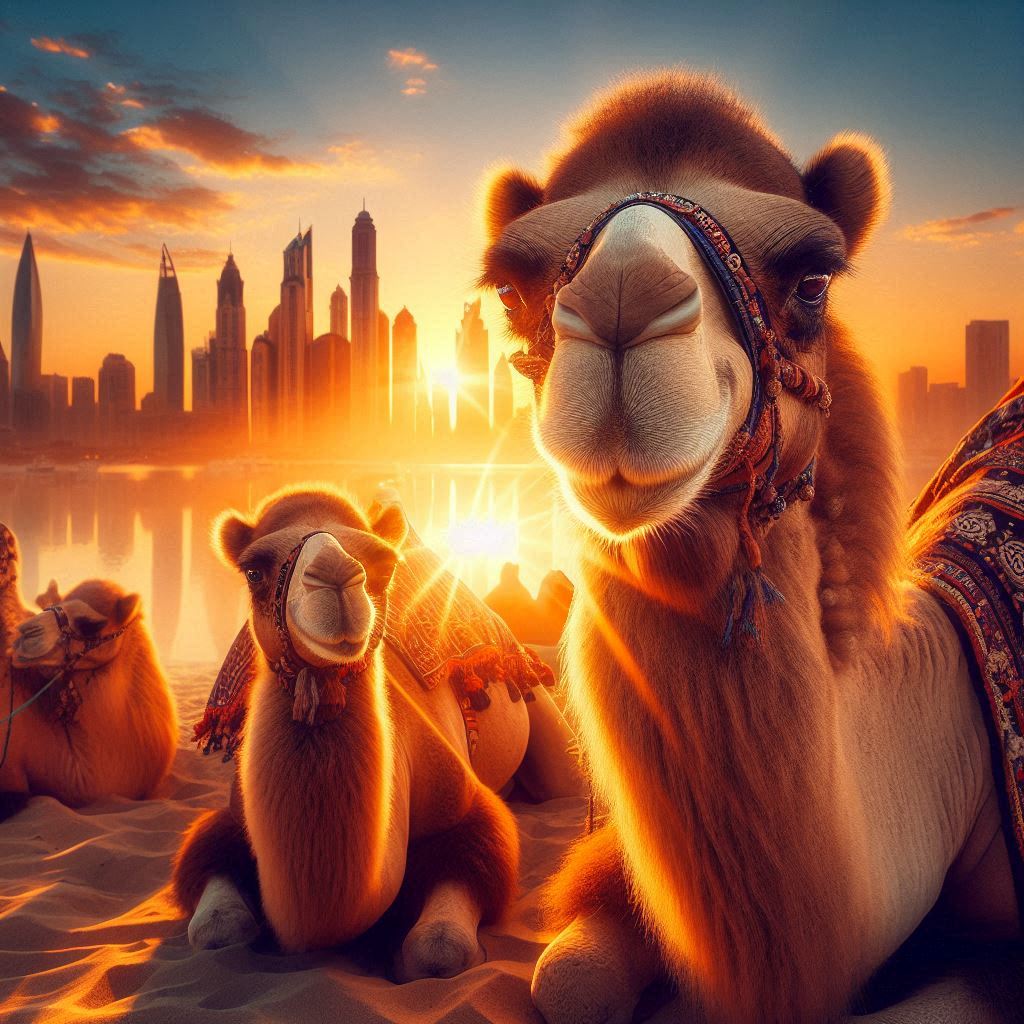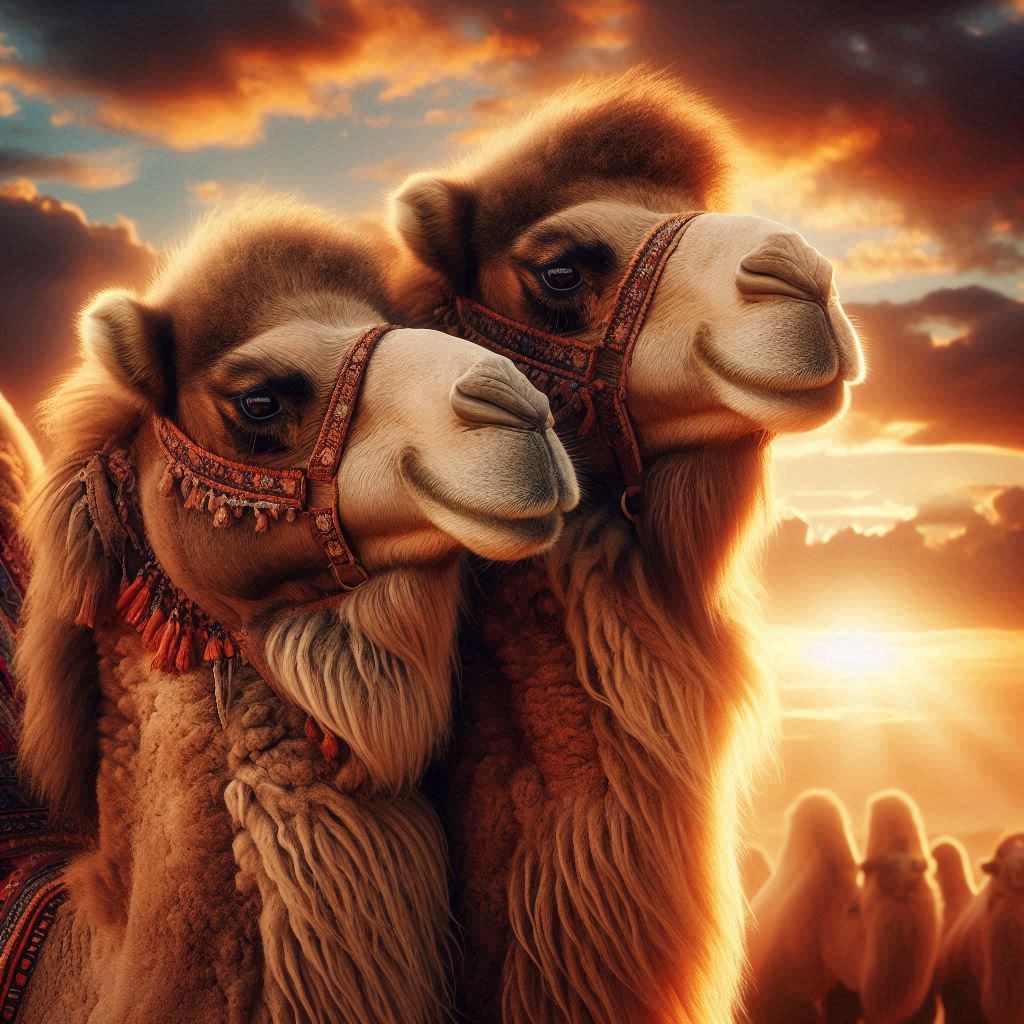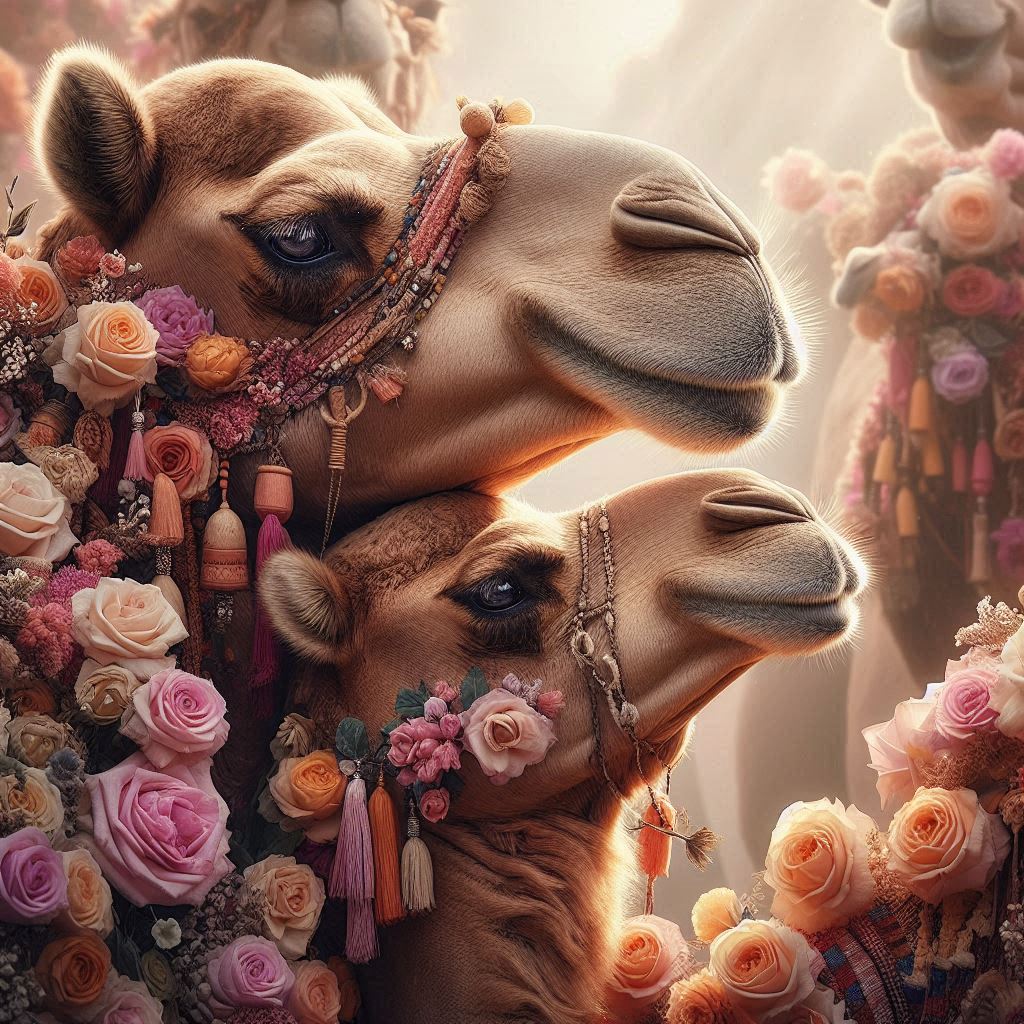About the camels , majestic Lovely animals , Desert Animal

Camels have been an integral part of the United Arab Emirates (UAE) culture and heritage for centuries. These majestic animals have played a vital role in the country's history, and their significance continues to this day. UAE camels are highly valued for their ability to survive in the harsh desert environment and for their versatility, making them an essential part of Emirati life.
Camels were originally used by nomadic tribes for transportation, food, and even as a form of currency. In the modern era, they still serve a similar purpose. Camel racing, a popular sport in the UAE, is a testament to the animal's strength and agility. The annual Al Marmoom Camel Racing Festival, held in Dubai, is a celebration of the culture and heritage of the UAE. The event attracts people from all over the world who come to watch the fast-paced races and enjoy traditional Emirati hospitality.

The UAE is home to two main breeds of camels: the dromedary or Arabian camel and the Bactrian camel. The dromedary camel is more common in the region and is known for its single hump, which stores fat and sustains the animal during periods of food scarcity. The Bactrian camel, on the other hand, has two humps and is found in Central Asia.
Camel milk is also highly prized in the UAE. It is a staple food for many Emiratis and is known for its nutritional value. Camel milk contains more vitamin C and iron than cow's milk and is also lower in fat. Camel milk products, such as cheese and ice cream, are becoming increasingly popular in the UAE and are exported to other countries.

In addition to their cultural and economic significance, camels are also an important part of the UAE's natural heritage. The Abu Dhabi Falcon Hospital has a program where they breed and raise camels to release them back into the wild, helping to maintain the ecological balance of the region.
Despite their importance, camels in the UAE are facing threats such as habitat loss and overgrazing. The UAE government has implemented initiatives to protect the camel population, such as regulating the number of camels per owner and providing veterinary care.
In conclusion, camels are an essential part of the UAE's culture, heritage, and economy. These animals have played a crucial role in the country's history and continue to do so in the present day. The UAE's commitment to preserving and protecting its camel population is a testament to its dedication to preserving its natural heritage for future generations.
Recent Posts
-
Sustainable Splendor: The Eco-Friendly Soul of Handcrafted Art
In an era of fast fashion and mass-produced home decor, the environmental cost of our "stuff" has ne …31st Dec 2025 -
The Art of Diplomacy: Why Handcrafted Heritage is the Language of Dubai’s Protocol
In the world of international relations and government protocol, a gift is never "just a gift." It i …31st Dec 2025 -
The Psychology of Appreciation: Using Bespoke Art to Retain Top Talent in Dubai
In the high-speed corporate environment of Dubai, where the global hunt for talent is relentless, a …31st Dec 2025



